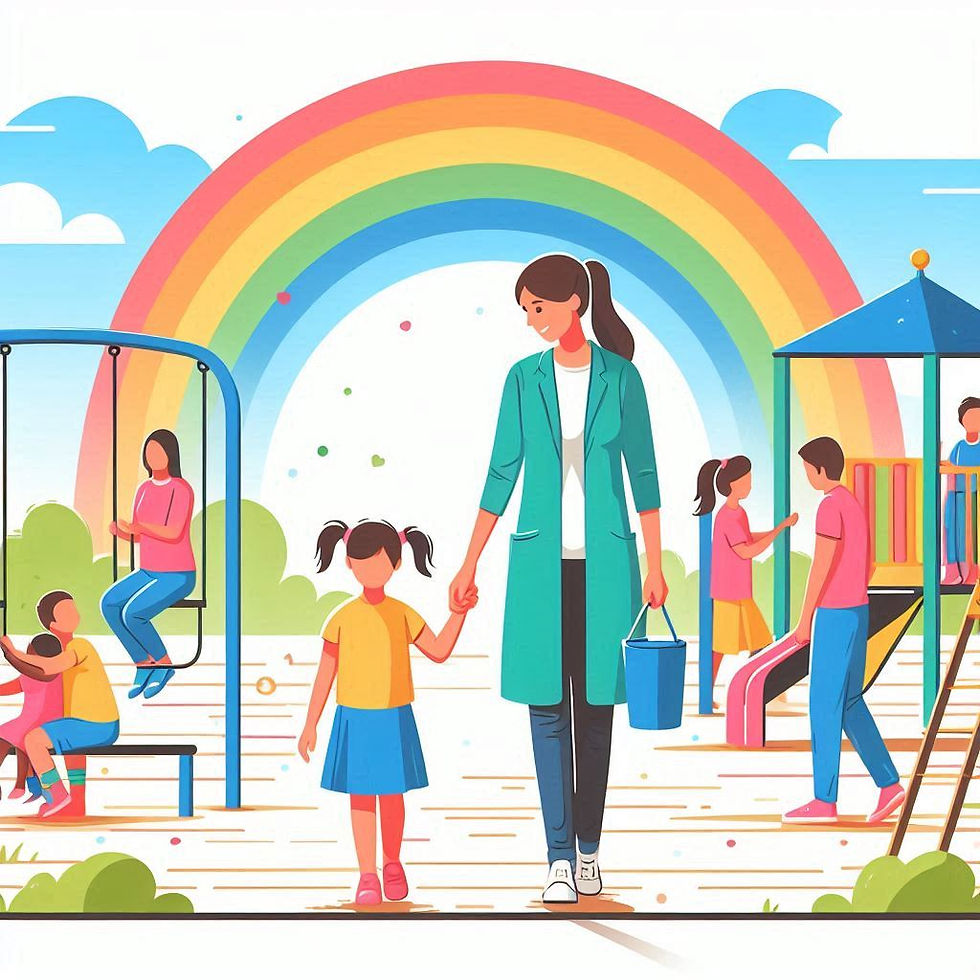MSW Child Welfare Personal Purpose Statement
- StatementWriter
- Oct 5, 2024
- 7 min read
Updated: Mar 21, 2025
I feel strongly that I am the best fit for your MSW Program at ____ University because we need social workers who live, think, work, and practice at the local level, and your educational institution stands at the center of the community that I know and love. I am currently an undergraduate student at __U, and I have come to love our academic community here and hope to be able to continue to blossom here as a graduate student. I also very much respect and appreciate the explicit focus of your program, not only on advocacy but also on “the achievement of social and economic justice.”

Upon graduating high school in 2012, I attended a community college, unsure which career path to follow. I later transferred to XXXX as a part-time student, where I studied while I worked 50+ hours a week to pay for my education-related expenses. This coming May 2016, I will graduate with my bachelor's degree in psychology. I am currently enrolled in two classes that are helping me think more sophisticatedly about social work, one in public health and the other in professional assertiveness and self-care.
In high school, I volunteered at the local soup kitchen and my local church making Thanksgiving baskets for needy families and aiding with Christmas presents. Most importantly, however, I have over 11 years of experience working in human services at a residential school for more than three hundred children with special behavioral issues in the NYC area.
My parents divorced when I was a toddler, as my father was psychically, verbally, and emotionally abusive to my mom. An alcoholic, he also abused drugs and suffered from several mental health disorders. My mother would remarry, and my stepfather became an essential part of my life; I called him dad. We were a large family with a half-sister, a biological brother, two stepbrothers, and a stepsister; all but my half-sister were older. My upbringing was in a suburban, middle-class family and I had a good childhood, yet I missed the relationship with my biological father. He moved to Vermont, so I didn’t see him often. As a young child, I could not understand why my mom didn’t allow us to visit him (his drug and alcohol use), and I resented my mother for this.

By the time I was in adolescence, I was wrestling with my problems, suffering from body image issues, anorexia, and bulimia; this caused me to miss many major events and stifled my emotional development in high school. I felt so ill from not eating at my graduation that I almost fainted; walled in by my eating disorder, I wasn’t enjoying or living life to the fullest in any way shape, or form.
These painful memories aroused my great interest in psychology, human behavior, and therapy, now coming together in my profound desire to devote my professional life to helping other young people, especially girls, to overcome their fears and address their body-image issues in more successful and timely ways than I was able to accomplish as a teenager. Eating disorders are difficult to understand unless you have been there. In several important ways, it is like alcoholism, seldom is one entirely cured, and one always must remain on guard against recurrence.

Like the struggle of the alcoholic to stay sober and the support that many of them receive from AA, similarly, those young people who suffer from eating disorders have much to learn and benefit from the experiences of those individuals, especially when they are counselors and social workers, who have struggled themselves with the same issues and have developed a tool kit of resources for successful behavior control. I have continued to struggle throughout my adult life until today in this regard. My primary salvation is staying busy, working full time, attending school, and active involvement with various student/social functions.
I have also learned a great deal about many of the issues central to social work – much of it painful, at least at first - due to my rekindled relationship with my biological father. It can be so tough to be a parent to your parent. The sustained drug and alcohol use of so many years has even damaged his brain functioning. I labor to understand his choices and lifestyle, and I constantly remind myself that what he has is a disease. He didn’t choose to be the way he is. My struggle to have a relationship with my father has helped me to cultivate greater empathy for individuals who suffer from mental health issues, and my own experiences have made me feel very sure that I want to work with troubled children in the future as an MSW professional, caring for them and helping them to cope.
Both of my grandparents were incredibly giving and played a huge and incredibly positive role in my life. They were my earliest heroes because they worked together at local soup kitchens, preparing, and donating food baskets and blankets to shelters. My grandfather was diagnosed with cancer in high school, so I moved in with my grandparents to help care for him by providing daily living essentials and care until he passed away a year later. They taught me valuable life lessons, most of all the vital importance of being a kind, empathetic person. These are the qualities that I have worked the hardest to cultivate and in which I take the most incredible pride.
I feel strongly that my area of primary interest, eating disorders among young people, is a social issue of profound importance, and extremely near and dear to my heart. The ideals thrust upon young women and girls, especially the equation of skinny and beautiful, do not affect men and boys to such an extent. We need to empower women and young girls to take complete control over their bodies, lives, and destinies by learning to recognize social and gender injustice and to love and cherish themselves for who they are.
I am concerned with gender inequality, especially regarding education and women’s rights. I am saddened and angered by what I have learned about girls' lack of access to educational opportunities, especially in the Developing World. This is one of the things that I look forward to helping to change in the future. Providing girls with an education helps break the cycle of poverty: educated women are less likely to marry early and against their will; less likely to die in childbirth; more likely to have healthy babies and are more likely to send their children to school. Everyone deserves the right to equal education of high quality. In addition to barriers to educational opportunities for girls worldwide, I also look forward to a lifetime of engagement with the issue of violence against women, working to prevent it and helping victims recover.
I am very much concerned with the welfare of children, issues of childhood poverty, malnutrition, safe drinking water, sanitation, and housing, and the way that even basic needs are not being met for so many children across the globe. Nelson Mandela best expresses my philosophy and sentiment: “Safety and security don’t just happen; they are the result of collective consensus and public investment. We owe our children, the most vulnerable citizens in our society, a life free of violence and fear.” Childhood poverty is a global issue.
My work as a programming coordinator at a special needs behavioral residential school outside of Boston, Massachusetts, has afforded me the opportunity to work with individuals of lower socioeconomic status in a most culturally diverse workplace and to increase my familiarity with a broad range of social welfare issues. We serve one of the most vulnerable of all populations, special needs children and adults. The experiences of the students and their families were very eye-opening for me, and I have learned a great deal from all of them.
My greatest strength is my dedication to my clients, students, and their families. Working with individuals with special needs can be exceedingly difficult and stressful, yet extremely rewarding. I am empathetic and a great listener. I wholeheartedly pour all my being into my work, and I am always eager to learn new things. My time management skills and ability to multitask are also among my greatest strengths. The one challenge I see myself facing is not being able not to help enough. Realizing I can only do so much to help others, my work often becomes my life, which can sometimes be detrimental. I sometimes find myself putting my work ahead of my family and friends, which can have negative consequences.
As a student in your program and beyond, I would like to continue working with children, some of the most vulnerable members of our community. I plan to continue working in my current position. Earning my MSW will enable me to provide more culturally sensitive assistance to my students and their families who come from such diverse backgrounds, cultures, and languages, and to gradually assume more significant levels of responsibility.
My ability to work full time 50+ hours a week and simultaneously attend school full time demonstrates my ability to manage my time and make the most of each moment.
Nevertheless, these long hours at work have had a negative effect on my grades, as a result of juggling so much – helping to care for my step-father who has cancer on top of it all -, I only have a 2.8 GPA at this time, but it is on the rise. As an MSW student, if accepted into your program, I plan to reduce the number of hours that I commit to at my current position.
Thank you for your consideration of my application.
MSW Child Welfare Personal Purpose Statement






This statement is already rich with purpose, vulnerability, and a clear sense of mission, and what stands out most is the writer’s ability to weave personal history with professional commitment in a way that feels deeply authentic. It reads as someone who has not only chosen social work, but someone for whom social work feels like an inevitability—an identity shaped by lived experience, hardship, resilience, and a long-standing pattern of service.
What makes the narrative compelling is the emotional honesty. The writer does not shy away from painful truths—family trauma, eating disorders, the complexity of loving a parent who struggles with addiction—and yet these experiences are never presented as wounds alone. Instead, they become the foundation of empathy, insight, and…